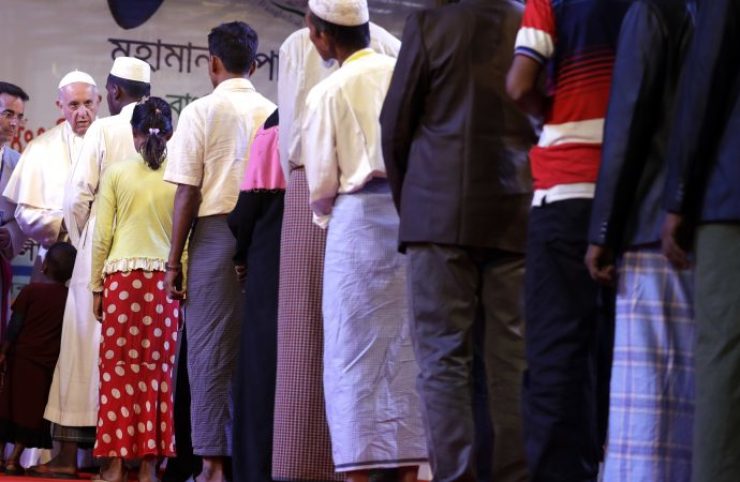
Pope Francis has asked for Rohingya's forgiveness 'for the world's indifference', as he addressed the Rohingyas during an interfaith and ecumenical meeting for peace in the garden of the archbishop's residence, in Dhaka, Bangladesh, on Dec. 1.
"In the name of everyone, of those who persecute you, of those who've done you wrong, above all, the world's indifference, I ask you for forgiveness," said Francis.
"I now appeal to your big heart, that you're able to grant us the forgiveness we seek," he added.
After avoiding the word "Rohingya" and only indirectly addressing the ethnic crisis in Myanmar, on Friday, Francis directly addressed the ongoing Rohingya crisis, with over 625,000 members of the Muslim minority fleeing Myanmar for Bangladesh since August.
"Let's not close our hearts, let's not look to the other side, the presence of God today is also called Rohingya," said Francis, according to Crux.
He met with 16 Rohingya members, who briefly spoke with him with the help of three translators.
Mohammed Ayub, 32, whose three year old son was killed by the Myanmar military, was among those who met with the pope.
"He is the leader of the world. He should say the word as we are Rohingya," said Ayub.
Also Abdul Fyez, 35, who had a brother killed by the military, was also allowed to meet the pope.
"We have been Rohingya for generations, my father and my grandfather," said Fyez.
During his trip to Myanmar from Nov. 27 to 29, Francis referred to the crisis indirectly, asking Myanmar to triumph over its ethnic conflicts and to build a peace based on the respect for the dignity and rights of each member of society, each ethnic group and its identity, none excluded.
On his arrival to Bangladesh on Nov. 30, he spoke about the crisis in Rakhine state.
"...none of us can fail to be aware of the gravity of the situation, the immense toll of human suffering involved, and the precarious living conditions of so many of our brothers and sisters, a majority of whom are women and children, crowded in the refugee camps," he said.




